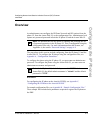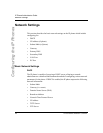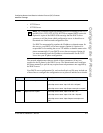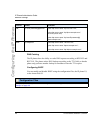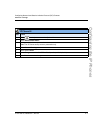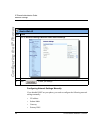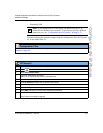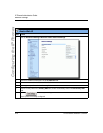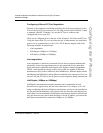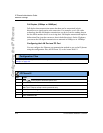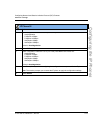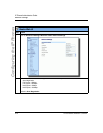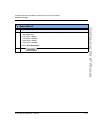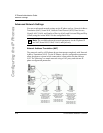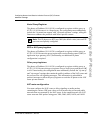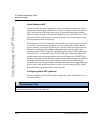
Network Settings
41-001160-00, Release 2.1, Rev 04 4-11
Configuring Network and Session Initiation Protocol (SIP) Features
Configuring the IP Phones
Configuring LAN and PC Port Negotiation
Ethernet is the computer networking technology for local area networks (LANs).
You use the LAN Port to connect to a LAN using a twisted pair 10BASE-T cable
to transmit 10BASE-T Ethernet. You use the PC Port to connect to the
configuration server (your PC).
There are two Ethernet ports on the rear of the IP phones: LAN Port and PC Port.
Using the Aastra Web UI, you can select the type of transmission you want these
ports to use to communicate over the LAN. The IP phones support each of the
following methods of transmission:
• Auto-negotiation
• Half-duplex (10Mbps or 100 Mbps)
• Full-duplex (10Mbps or 100Mbps)
Auto-negotiation
Auto-negotiation is when two connected devices choose common transmission
parameters. In the auto-negotiation process, the connected devices share their
speed and duplex capabilities and connect at the highest common denominator
(HCD). Auto-negotiation can be used by devices that are capable of different
transmission rates (such as 10Mbit/sec and 100Mbit/sec), different duplex modes
(half duplex and full duplex) and/or different standards at the same speed. You can
set the LAN and PC Ports on the IP phones to auto-negotiate during transmission.
Half-Duplex (10Mbps or 100Mbps)
Half-duplex data transmission means that data can be transmitted in both
directions on a signal carrier, but not at the same time. For example, on a LAN
using a technology that has half-duplex transmission, one device can send data on
the line and then immediately receive data on the line from the same direction in
which data was just transmitted. Half-duplex transmission implies a bidirectional
line (one that can carry data in both directions). On the IP phones, you can set the
half-duplex transmission to transmit in 10Mbps or in 100Mbps.



